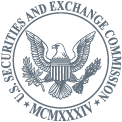The Regulatory Regime for Security-Based Swaps*
Swaps are financial contracts in which two counterparties agree to exchange or "swap" payments with each other as a result of such things as changes in a stock price, interest rate or commodity price. The SEC has approved proposed rules that lay out when the SEC's regulatory requirements would apply if a security-based swap transaction occurs in part in the U.S. and in part outside the U.S.
In 2010, Congress passed legislation tasking the SEC and CFTC with creating a regulatory regime to govern this multi-trillion dollar market. The 2010 Dodd-Frank Wall Street Reform and Consumer Protection Act assigned the CFTC responsibility for "swaps" and the SEC responsibility for a portion of the market known as "security-based swaps," which include, for example, swaps based on a security, such as a stock or a bond, or a credit default swap. The new regime is intended to make this market more transparent, efficient and accessible.
Under the new regime, the SEC would regulate:
- Dealers and major players in the security-based swap market.
- Trading platforms and exchanges on which certain security-based swaps would be transacted.
- Clearing agencies that generally step in the place of the original counterparties and effectively assume the risk should there be a default.
- Data repositories that would collect data on security-based swaps as they are transacted by counterparties, make that information available to regulators, and disseminate data such as the prices of security-based swap transactions to the public.
For the first time, regulators would be able to monitor and oversee the market.

Counterparty
There are three types of counterparties who could enter into a security-based swap transaction with another counterparty:
- Security-based swap users
- Major security-based swap participants
- Security-based swap dealers
Security-based swap users are participants in the market who are not required to register with the SEC.
There are rules defining the types of counterparties considered to be major security-based swap participants and dealers. These parties would have to register with the SEC and be subject to various requirements, including adhering to certain proposed capital, margin, and segregation requirements and business conduct standards. They would have to provide their counterparties a trade acknowledgement detailing information specific to the security-based swap transaction.
Security-Based Swaps
Under the Dodd-Frank Act, the SEC regulates "security-based swaps," and the CFTC regulates "swaps." There are rules defining which types of transactions are considered "swaps," which are considered "security-based swaps," and which fall outside the definition of either. Existing rules prohibit fraud, manipulation, and deception in the trading of security-based swaps. The Commission has also proposed additional rules in this area.
Over the Counter (OTC)
OTC security-based swap transactions are those that are negotiated between two counterparties, as opposed to being transacted on a SEF or an exchange in which many counterparties are brought together to trade. Rules would dictate which security-based swaps must be transacted on a SEF or an exchange.
Security-Based Swap Execution Facilities (SEFs)
SEFs are a type of regulated trading market that bring together multiple participants to transact in security-based swaps. Certain security-based swaps that are required to be cleared would need to be transacted on a SEF or an exchange. Other types of security-based swaps may be transacted on a SEF or an exchange, or on an OTC basis by negotiation between two counterparties.
There are proposed rules regarding the registration of SEFs, as well as their duties and core principles. There are also proposed rules intended to mitigate conflicts of interest that might arise in a SEF.
Security-Based Swap Data Repositories
Security-based swap data repositories are centralized recordkeeping facilities. There are proposed rules reflecting the core principles and duties of security-based swap data repositories, describing what transaction information counterparties would be required to report to a security-based swap data repository, and what information security-based swap data repositories would be required to publicly disseminate.
Security-Based Swap Clearing Agencies
Certain transactions would be required to be cleared through security-based swap clearing agencies. Security-based swap clearing agencies step in the place of the original counterparties and effectively assume the risk should there be a default. There are rules outlining standards for risk management and operations of clearing agencies and rules specifying how clearing agencies are to submit information to the SEC for a determination of which types of security-based swap transactions must be cleared. There are also proposed rules intended to mitigate conflicts of interest for security-based swap clearing agencies and that provide qualified 'end users' with an exemption from mandatory clearing, subject to certain conditions.
The Public
For the first time, the public will be able to see trade and price information about security-based swap transactions.
SEC and Other Regulators
In order to monitor and oversee the security-based swap market, the SEC and other regulators would have access to information contained in security-based swap data repositories. The SEC, and in some cases, other regulators, would also directly oversee key players in the security-based swap market, including security-based swap dealers, major security-based swap participants, swap execution facilities, exchanges, security-based swap data repositories, and security-based swap clearing agencies.
* This graphic is based on the provisions of Title VII of the Dodd-Frank Wall Street Reform and Consumer Protection Act as well as the SEC's implementation efforts to date.

